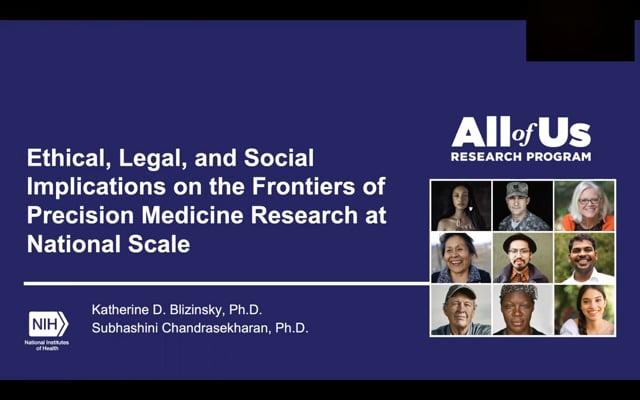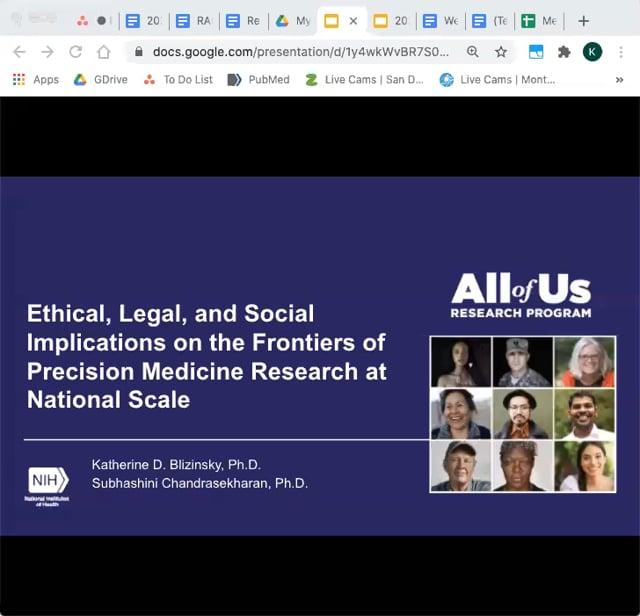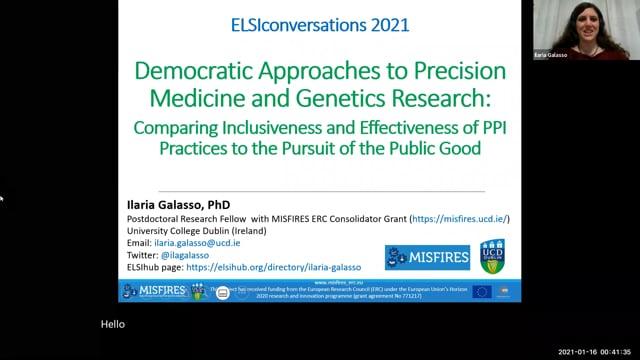A Prospectus on Ethical Issues in the Context of Collaborations Between Academic and Non-academic Institutions on Genetics Research
Emily Bullis, MA and Anjali Shastri, PhD - 23andMe
ELSIconversations - February 26, 2021
Genetics research has been far from equitable in terms of engaging representative numbers of participants of non-European origins. 23andMe, with one of the largest research cohorts in the world, aims to increase the diversity of its genetic data and improve its analysis methods so that new discoveries and products benefit people of all racial and ethnic backgrounds. Through our Populations Collaborations Program, 23andMe partners with researchers who are engaging populations underrepresented in genetics research by: a) providing genotyping at no cost; b) ensuring that appropriate institutional and local ethics approvals are acquired; and, c) providing grants for community support and project-related activities. Since the launch of the Program, both collaborators and international organizations have noted a need for ethical accountability in genomics research involving underrepresented populations. In this presentation we will highlight specific ethical challenges we have encountered in our recent experiences and described in emerging ethical frameworks, including: obtaining community input, acquiring informed consent, tensions between broad and restrictive data access, the need to identify appropriate benefits and opportunities for local capacity building, and lastly, issues regarding the return of research results. Drawing from these topics, we will describe an ethical framework we are developing for 23andMe’s purposes, as well as our plan to extend this framework to a broader set of collaborations between academics and non-academics engaging underrepresented populations in genetics research.
Tags
Videos in Series
-
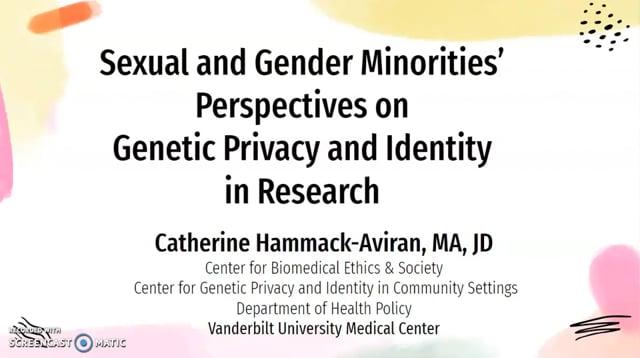
ELSIconversations 1: ELSIcon2020 - Sexual and Gender Minorities’ Perspectives on Genetic Privacy and Identity in Research
-
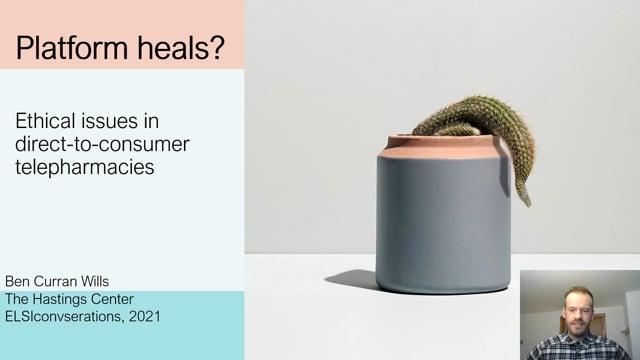
ELSIconversations 1: ELSIcon2020 - Platform Heals? Ethical Issues in Direct-to-consumer Telepharmacies
-
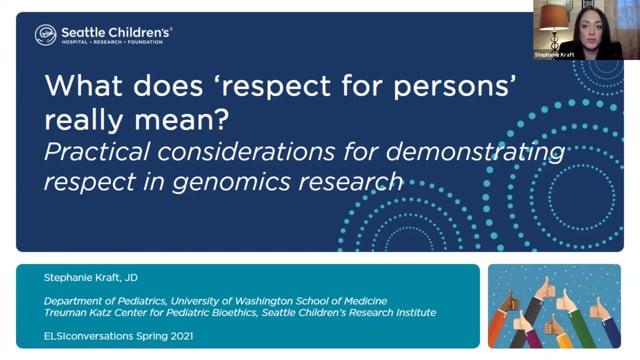
ELSIconversations 1: ELSIcon2020 - What does ‘respect for persons’ really mean? Practical considerations for demonstrating respect in genomics research
-
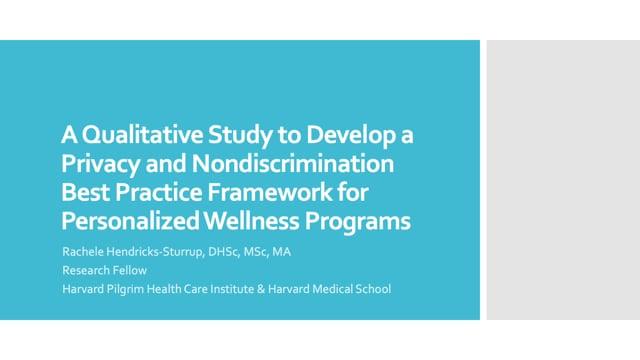
ELSIconversations 1: ELSIcon2020 - A Qualitative Study to Develop a Privacy and Nondiscrimination Best Practice Framework for Personalized Wellness Programs
-
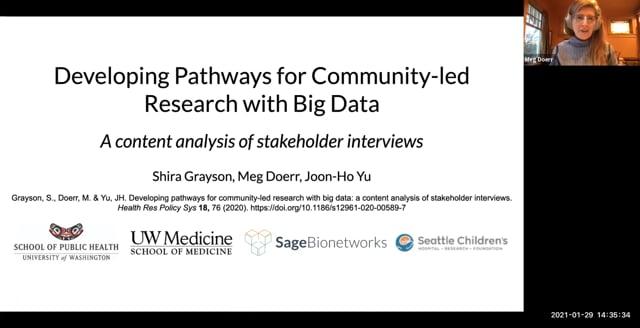
ELSIconversations 1: ELSIcon2020 - Developing Pathways for Community-led Research with Big Data: A Content Analysis of Stakeholder Interviews
-
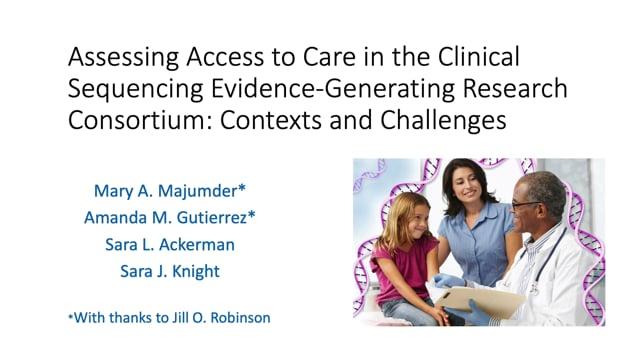
ELSIconversations 1: ELSIcon2020 - Part 1. Assessing Access to Care in the Clinical Sequencing Evidence-Generating Research Consortium: Contexts and Challenges
-

ELSIconversations 1: ELSIcon2020 - Which Public, What Comments? An Analysis of Public Comments on Human-Animal Chimera Research Submitted to the National Institutes of Health
-
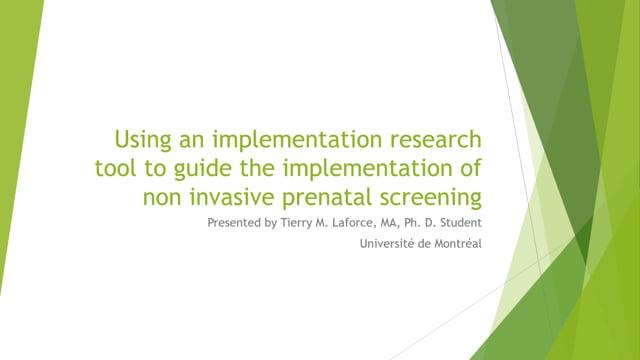
ELSIconversations 1: ELSIcon2020 - Using an implementation research tool to guide the implementation of non-invasive prenatal screening
-
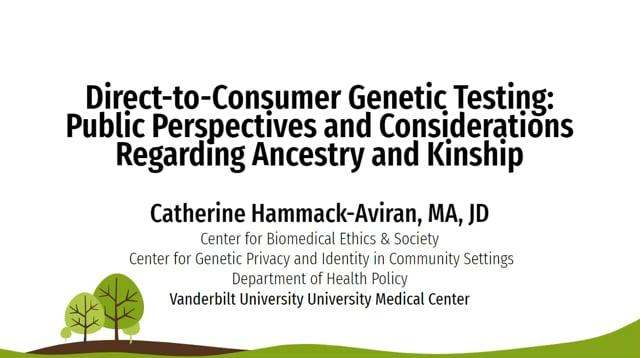
ELSIconversations 1: ELSIcon2020 - Direct-to-Consumer Genetic Testing: Public Perspectives and Considerations Regarding Ancestry and Kinship
-
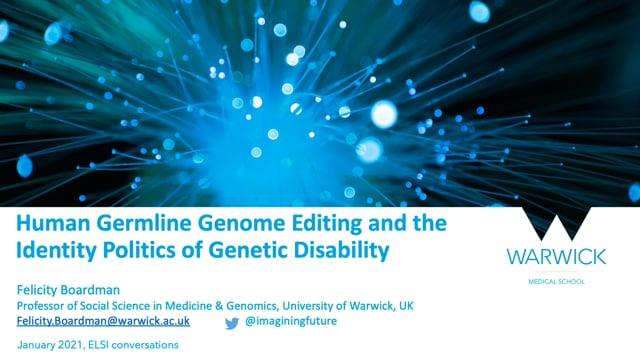
ELSIconversations 1: ELSIcon2020 - Human Germline Genome Editing and the Identity Politics of Genetic Disability
-
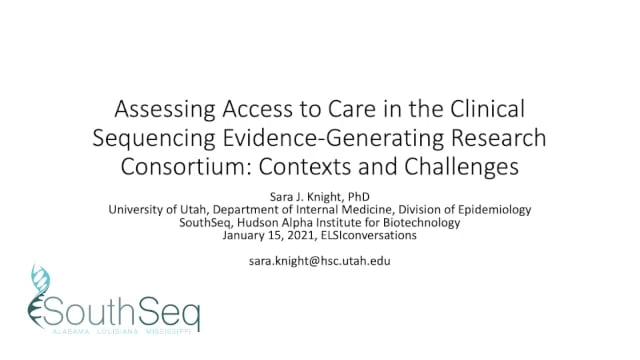
ELSIconversations 1: ELSIcon2020 - Part 4. Assessing Access to Care in the Clinical Sequencing Evidence-Generating Research Consortium: Contexts and Challenges
-
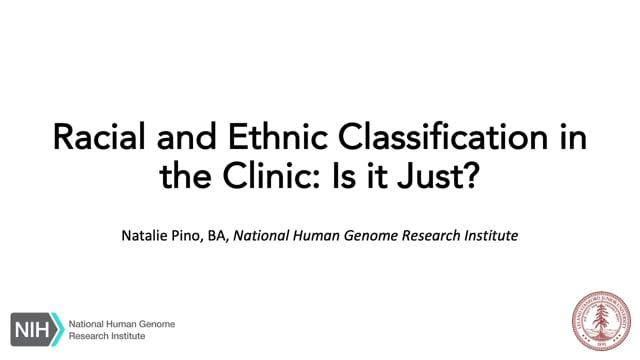
ELSIconversations 1: ELSIcon2020 - Racial and Ethnic Classification in the Clinic: Is it Just?
-
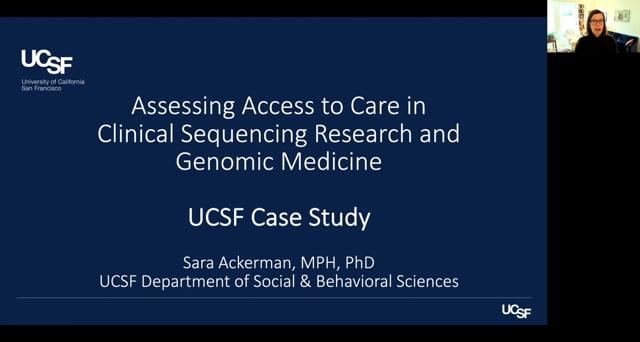
ELSIconversations 1: ELSIcon2020 - Part 3. Assessing Access to Care in the Clinical Sequencing Evidence-Generating Research Consortium: Contexts and Challenges
-
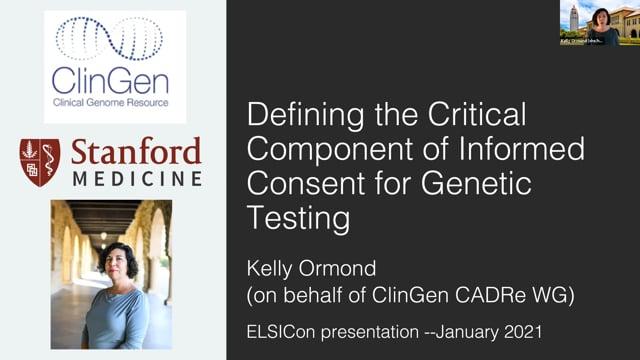
ELSIconversations 1: ELSIcon2020 - Defining the Critical Components of Informed Consent for Genetic Testing
-
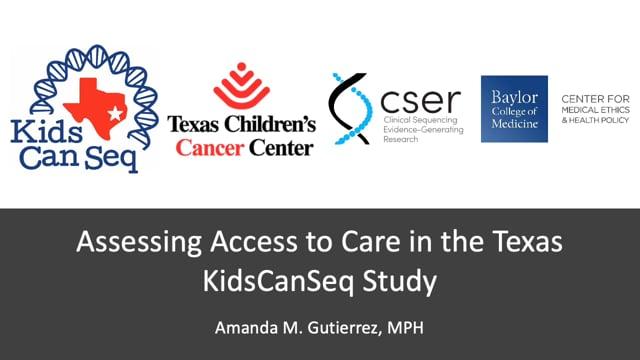
ELSIconversations 1: ELSIcon2020 - Part 2. Assessing Access to Care in the Clinical Sequencing Evidence-Generating Research Consortium: Contexts and Challenges
-
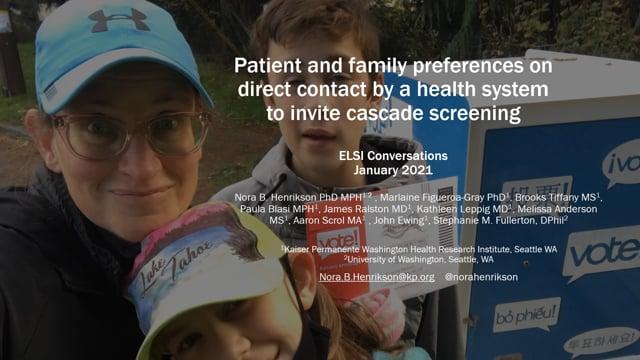
ELSIconversations 1: ELSIcon2020 - Patient and family preferences on direct contact by a health system to invite cascade screening

